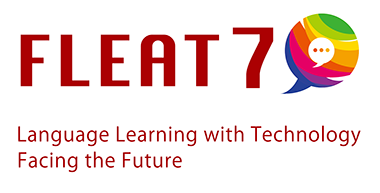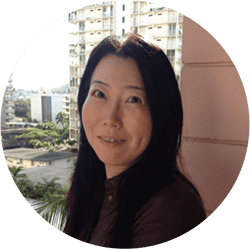


Biography
Yoshiko Goda is currently an associate professor in the Research Center for Instructional Systems, Kumamoto University, Japan. She has been a director of the International Board of Standards for Training, Performance, and Instruction (ibstpi) since 2015. She received an M.Ed. (English Education) from Tokyo Gakugei University in 1996, as well as an M.S. (Computer Education, 1998) and Ph.D. (Science Education, 2004) from the Florida Institute of Technology with the partial support of a Fulbright Scholarship. She has teaching experience from various countries, including Taiwan, the US, and Japan. Her current research interests include self-regulated e-learning, instructional and learning design, online education program evaluation, technology enhanced language learning, and innovative communities for global education.
Keynote Presentation:
Abstract
In this presentation, I will discuss ways to integrate theory, practice, and technology for the effective use of technology enhanced language learning (TELL). There are three main parts to the presentation: (1) discussing a preliminary model of integration that balances both data-driven and knowledge-driven approaches, (2) looking at case studies for self-regulated learning (SRL) and collaborative learning (CL); and (3) reviewing current issues and future implications
There are few theories and models in existing educational pedagogy that have been specifically developed for technology enhanced learning. Technology enables us to record and visualize students’ learning processes, giving us the opportunity to revisit and reshape existing theories and models of teaching and learning. I propose not only the merging of theory and technology for better practical application of technology enhanced learning, but also reinvigorating this theory to develop new ways of using technology in the classroom.
There are several relevant case studies that focus on SRL and CL for learning support. SRL is generally accepted as an essential skill for online learning. The communicative approach is also encouraged for effective and active language learning. SRL and CL are both essential to increasing the breadth, depth, and fluency of language proficiency. To increase the quality of interactions among students in language-learning environments, Community of Inquiry (CoI) was employed in our research projects, with social, cognitive, and teaching elements. Design and support for effective use of SRL and CL, as well as how to effectively combine the two, will be revealed through demonstrations of our developed systems. The limitations and integration issues we faced will also be introduced.
Finally, considerations for organizing the integration of theory, practice, and technology for TELL will be explored. The limitations of the proposed preliminary model will be discussed, and the significance of balanced data-driven and knowledge-driven approaches will be emphasized for future development.